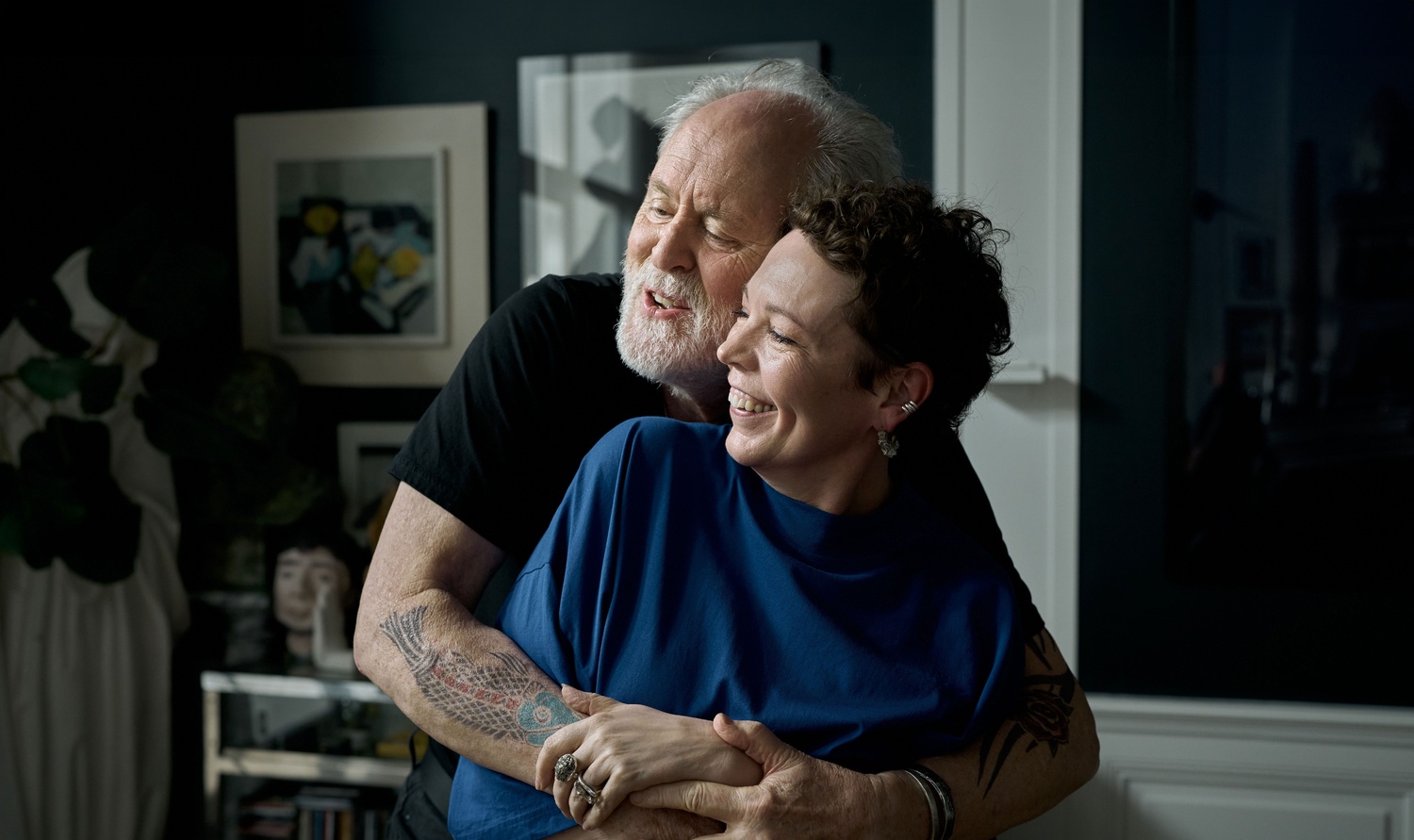
News
When Professors Speak Out, Some Students Stay Quiet. Can Harvard Keep Everyone Talking?

News
Allston Residents, Elected Officials Ask for More Benefits from Harvard’s 10-Year Plan

News
Nobel Laureate Claudia Goldin Warns of Federal Data Misuse at IOP Forum

News
Woman Rescued from Freezing Charles River, Transported to Hospital with Serious Injuries

News
Harvard Researchers Develop New Technology to Map Neural Connections
From Sundance: ‘Jimpa’ is A Tender Ode to Complicated Love
Dir. Sophie Hyde — 4 Stars

Film critic Roger Ebert once wrote, “I’ve been saying for years that I never cry during sad moments in the movies, only during moments about goodness.”
Such a sentiment perfectly captures the complicated and lovable characters in Sophie Hyde’s sophomore feature, “Jimpa.”
“Jimpa” is an original and earnest tragicomedy that follows filmmaker and mother Hannah (Olivia Colman) and her non-binary 16-year-old child Frances (Aud-Mason Hyde) as they travel to Amsterdam to visit Jimpa (John Lithgow), their gay grandfather. Frances is incredibly disconnected from their queerness in the more conservative Adelaide, Australia as a non-binary teenager and sees Amsterdam as an alternate queer utopia. The appeal of Amsterdam fuels the central drive of the story: Should Frances leave their life in Australia and move in with their eccentric grandfather to nourish their queer identity?
The push-and-pull of leaving or staying to nourish a person’s ability to live and its effect on family builds a beautiful conversation that asks if love truly has to be sacrificial. Frances’ choice aptly parallels the choice Jimpa had to make with his family when he came out, elevating the question of sacrificial love into an affectionate analysis of queerness within familial structures and self-autonomy.
The beating heart of this film is the three-generational family that was inspired by director Sophie Hyde’s real life. Much like Hannah, Hyde grew up with a gay father and has a non-binary child who stars as Frances. The realness of the story enables the actors to truly bring a distinct vulnerability and authenticity to their performances, and through Hyde’s wonderful direction, they deliver exactly that. As the viewer, it is difficult not to see the characters on-screen as wholly realized individuals.
Lithgow blazes across the screen in his intricate and bold role as a grandfather and former activist of the HIV/AIDS crisis who sees the very act of living as a continuous statement of survival and celebration. His self-assurance is charming, but in moments where he teeters into controversial territory like denouncing bisexuality and “queer” as a positive word, his humanity becomes all the more tangible.
This humanity is born from the obvious generational gap between Frances and himself; Jimpa grew up fighting for LGBTQ+ rights, and Frances is able to live in the product of the fight. “Jimpa” is so enthralling because the titular character sees the modern world as a utopia for queer youth. As he emotionally puts it: “They have all the words.” In the modern world, Jimpa sees the receptivity towards gender non-conformity and the influx of new terminology as a privilege that was absent when he was growing up. Lithgow manages to be lovable for every second of his screen time, especially when he is jesting with his chic social circle of elderly gay men who lived through the same difficult times.
Hyde wrote in her director’s statement, “The greatest gift my father gave me was to show me his true self.”
Colman as Hannah expertly comes to know this lesson in “Jimpa.” As the only straight-identifying main character, Colman imbues Hannah with the irresistible charm of a parent who is constantly willing to learn while being incredibly witty — especially in scenes where she is introduced to new queer terminology such as “compersion.” Yet Hannah's acceptance is tested by her trepidation towards her father’s unabashed ways, leading to a layered narrative arc that leaves tears in one’s eyes.
Aud-Mason Hyde, who plays Frances, delivers the weakest performance in the film, as they are overshadowed by two masterclass performances and a script that portrays them as the most sententious character in “Jimpa.” Frances fails to be as realized of a character as Jimpa and Hannah. Most of their screen time is filled with a didactic discourse that feels less of the character’s opinion and more of a cultural talking point. Hyde’s performance doesn’t root itself as well as their co-stars, but a handful of standout scenes with Lithgow sheds light on their blossoming potential.
Such grounded characters mean this film will not easily be categorized into any stereotypes or tropes within the greater canon of queer cinema. “Jimpa” refuses to give itself to the monsters of online discourse by ensuring that there are always people behind any conversation about queer existence. It can be so easy to let political conversations concerning queer people become isolated from entire lives that carry a dense history of hardship and celebration within them, so “Jimpa” provides a remedy for this.
Hyde accomplishes this through the emotive mechanics of silent flashbacks. When Jimpa is joshing with his social circle in modern Amsterdam, the film suddenly cuts to the same social group in their grimy rebellious years, as their youthful bodies cradle each other or as they sternly protest for their rights as queer men. Every character has flashbacks at some point in the film, creating a tapestry of memory and livelihood that places empathy as the foundational pillar of the film.
“Jimpa” is a delicate film that is energized by unconditional kindness and love, no matter the label, the situation, and how a person creates their space in this world.
—Staff writer Kai C. W. Lewis can be reached at kai.lewis@thecrimson.com.
Want to keep up with breaking news? Subscribe to our email newsletter.
